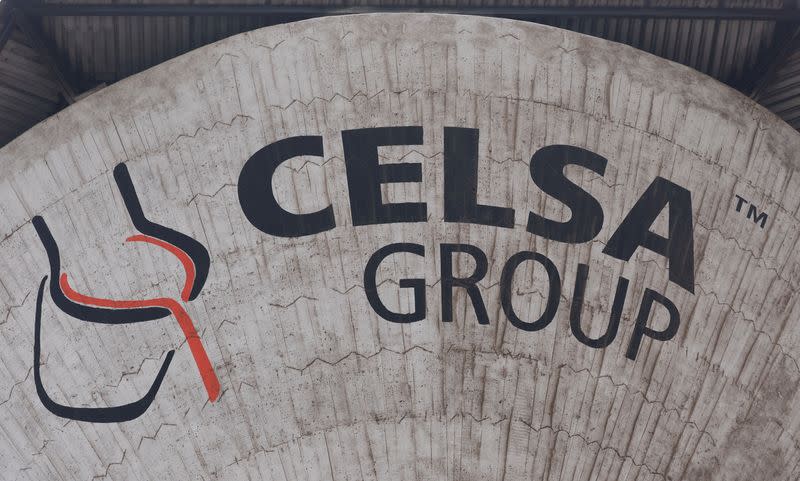Analysis-Spain's new restructuring law is being put to the test, fast

By Chiara Elisei and Jesús Aguado
LONDON/MADRID (Reuters) - Spain's new restructuring law is just over four months old and already being tested as the economy slows, with companies and officials hopeful it will help cut high bankruptcy rates.
The reform has streamlined and speeded up the process to restructure debt. That's a big deal in Spain, where Eurostat figures show business bankruptcy declarations jumped 66% in the third quarter of 2022 from the previous one, versus an average rise of 16% for the European Union.
Now, a restructuring plan for Celsa, Spain's largest private industrial group with debt worth roughly 2.8 billion euros ($3.04 billion), is going through the courts. It's also a trial of the new law, considered by legal experts as the jewel in the crown of a reform package that took effect in September.
Signs that reforms are working could lift investment in the fourth-biggest euro area economy and help buffer against a downturn. Spain's central bank has cut its 2024 growth forecasts.
"The problem in Spain with restructuring a company is that it takes a long time to be implemented as the courts are overwhelmed, [but] you can't leave a company with financial problems for two years without taking decisions," said Jose Carlos Diez, professor of economics at the University of Alcalá de Henares.
"What this law is trying to do is avoid full bankruptcy proceedings," added Diez, a former member of the European Central Bank's panel of experts on Europe's economy.
When COVID triggered lock-downs in March 2020, the obligation to declare bankruptcy was suspended until June 2022 to avoid an avalanche of business failures.
Companies actively applied for state-backed funding during the pandemic but some economists feared the moratoria would hide "zombie" companies that under normal circumstances should have been liquidated.
Over 26,200 companies shut down last year, a 10.1% jump from 2021 and the highest number since official data was first compiled in 1995.
LITMUS TEST
A court-sanctioned restructuring plan in December for Spanish frozen food retailer Xeldist Congelados allowed it to receive fresh capital and save jobs in a first success for the new law.
Now focus is on the much bigger Celsa, caught in a battle between creditors and shareholders who have been unable to reach an agreement to restructure debt, two sources with knowledge of the matter said.
The new reform enables a deal to be implemented even if parties disagree.
For a FACTBOX on Celsa click here.
Celsa's creditors propose cutting the debt by around 1.29 billion euros and taking control of the firm, while generating a new contract for remaining debt, the sources added.
A court-appointed expert from consultancy firm Lexaudit will soon assess whether the plan is sustainable before a court ruling this quarter or next, they said.
"The Celsa case shows that creditors can push for a restructuring plan and request the appointment of an expert to assist in the negotiations," said Juan Verdugo, partner at law firm Garrigues. "If successful, it will build evidence that the new plan drastically changes the dynamics, as many of the levers that the debtor had in the past lose strength."
Celsa declined to comment.
"Viable companies or business units are intended to not go down the drain, but to [implement] a restructuring plan to enhance thriving possibilities," added Javier Zuloaga, partner in the litigation and insolvency legal department at KPMG Spain.
SET THE TONE
A successful outcome for Celsa could set the tone for others.
The number of insolvent Spanish debtors, individuals and companies, rose by around 86% in the fourth quarter compared to the same period in 2021, and by around 78% versus the previous quarter, Spanish data showed.
According to Garrigues' Verdugo, the figures confirm that 2022 ended with over 7,000 insolvency proceedings, something not seen since 2013 -- the worst moment of a real estate crisis.
The new law allows "Spain to be better prepared to manage this surge of insolvencies upon business-owners and creditors so they realise that they shouldn't bury their heads in the sand," he added.
Spain is playing catch up after the EU in 2019 told member states to improve restructuring toolkits. While some, such as Germany, acted quickly, Spain and Italy requested a one-year extension.
But it's better late than never.
"The next six-to-twelve months will be very important to develop the law and show there is consistency and certainty," said Josu Echeverría Larrañaga, partner at accounting firm PwC.
"This will help attract new investors, particularly funds for which it will get easier to take the equity of a company in a restructuring."
The reform bodes well for long-term investment, boosted by the post-COVID EU Recovery Fund.
"We're seeing a dynamism in Spanish markets and strong investment over the last two years," said Micaela Forelli, managing director of Europe at M&G Investments. "This is partly a reflection of reforms that have taken place; a younger workforce is also helping."
($1 = 0.9183 euros)
(Reporting by Chiara Elisei and Jesús Aguado, editing by Dhara Ranasinghe and Christina Fincher)

 Yahoo Finance
Yahoo Finance 